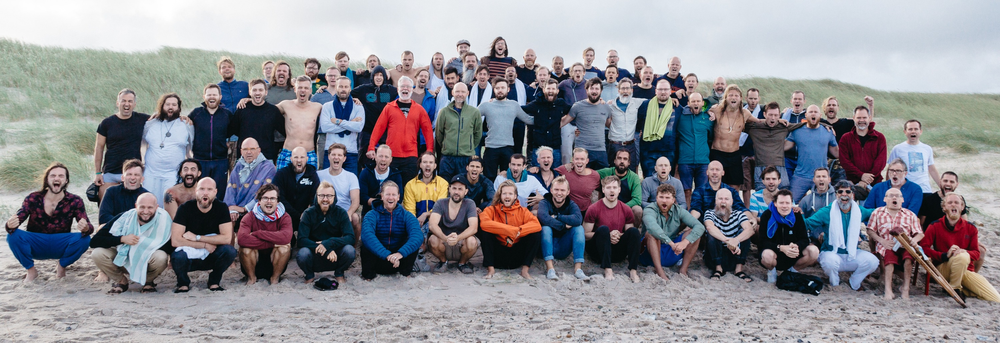Accountability Manifesto

Introduction
Accountability means that we show up to be counted – we give a reckoning, we explain, justify. It is related to latin computare, which is to add things up to see what the total is.
At Maniphesto we commit to accountability. This means we agree to compare our words to our actions over time and allow the judgment of others on our (mis)alignment or (in)coherence.
In short we strive to be men of our word.
Accountability as Judgement
Why do we do this?
In a society where judgment is seen as bad and tolerance of all things is seen as a good, we notice that men are yearning for accountability.
Judgment has an important function – at the highest level, it brings about a state of justice to the present. As human beings, we have an instinctive and natural yearning towards justice and thus also to judgment. Most wisdom traditions would posit that judgment is a mechanism of the natural order of things. In Eastern religions this is called “karma”. In ancient Greek philosophy, justice is one of the four cardinal virtues. In Christianity, Christ is seen as the judge.
Judgment is often delayed. If you are a bad person, then you may prefer justice to be pushed as far away as possible, so you can enjoy the fruits of your misdoings. But if you are a person aiming towards to the good, then you look forward to judgment. Not your own, but what we would call “objective” or “divine” judgment and justice.
That is why we look for the judgments of other good men we look up to. Especially we yearn for the judgment of father figures.
Accountability in practice
We need others to hold us accountable. We are far too good at rationalizing and forgetting our commitments. And in practice, we struggle to submit ourselves to an actual accountability group, often experiencing that disagreements arise, drama ensues, and the process collapses.
Part of the reason for this is that we do not have the perfect “father figure” on hand who makes perfectly just judgements which we willingly submit to. In fact most of the time we have “brotherly figures”, who we at least unconsciously are competing with, judging negatively ourselves or simply disagree with their perspective.
That is why accountability in practice involves building relationships of trust. In the following we will present some of the most important aspects of building trustfor accountability.
Patient listening. Most of the time, we project our own issues, motivations and shortcomings onto others. This means that our judgments and ability to hold other men accountable are severely limited by our own progress. Thus, the ability to listen attentively, without judgment and with an utmost respect and appreciation of the value of another person, even putting them above one’s self, will go very far in determining our ability to support him with accountability.
Similar worldviews. Every person has a foundational set of beliefs about life, existence, what humans are and why we are here. To the extent that these overlap, we are more likely to interpret statements, events and actions similarly. When these foundational beliefs differ greatly, then accountability processes will be less effective and will need to be more focused on simple witnessing and mirroring as opposed to judgment.
Balance between challenge and respect. An accountability group needs to be willing to ask tough questions in order to ensure depth. But challenge should always be built on respect of things said in confidence and never misusing vulnerable information. The key here is the underlying motivation – accountability processes must be held in a true spirit of mutual support, appreciation of strengths and gentle treatment of weaknesses.
Strong, principle based leadership. If you do it long enough, confusion and even drama are likely to pop up once in a while in an accountability group. At these times, it is important that the group has a clear leader who upholds and enforces clear shared principles in a consistent way.
Personal connection. Large group accountability needs to be supplemented with personal accountability in smaller groups or even 1-on-1 interactions which help cultivate personal connections of trust and understanding.
How we do Accountability
Stating one’s goals in front of a group of men and being held accountable for one’s actions is perhaps the most central focus of the work we do on Maniphesto Core.
When men join Core, then they are supported in creating a personal vision for their life, setting concrete goals and then implementing daily habits. Weekly meetings in groups are focused on supporting men in ensuring movement towards the set goals. Groups also organize daily buddy calls where individual men connect and support each other in getting through the small hurdles and challenges of everyday life.
The importance and transformative power of these daily buddy calls cannot be underestimated. Through the simple point of connection of having to report back on your progress towards a specific outcome every single day, and being held accountable to your commitment, men are able to build awareness and integrity in a pwoerful way.
Our work in Maniphesto is guided by our 10 Principles. In this way, we have a shared foundation for our work. In this work, we consider it naive to make inclusion and tolerance the most central values. Instead we aim to set a high standard with pragmatic principles which lead to men living thriving lives of purpose and direction.
If you want to experience working on accountability in a group of men, then sign up for Maniphesto Core here.



